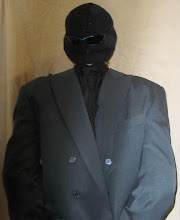Democracy is understanding
Democracy is loving others as you love yourself
Democracy is patience
Democracy is choice
Democracy is faith
Democracy is perspective
Democracy can be evil
Democracy can be good
Democracy is seeing the world for the way it is
Democracy is loving others as you love yourself
Democracy is patience
Democracy is choice
Democracy is faith
Democracy is perspective
Democracy can be evil
Democracy can be good
Democracy is seeing the world for the way it is
Firstly, in and of itself, Democracy simply a choice. In our day and age is a choice over who becomes revered. It is usually considered as this in government, but has spread to things like awards (The Logies, Australian Idol). In Western Society, we have decided that we need almost absolute autonomy. We need the choice over things that don't affect us in the slightest as well as over the things that will affect us in the highest. However in this case we will be discussing democracy as the political system.
The rest of Lyla's list therefore is what she sees the outworking of democracy to be and therefore to discuss these they will be as opinion and will be compared with opinion.
Democracy is patience (with people rather than a situation is implied). I personally agree. The problem with this is that through democracy we demand to be able to do something now. We can see this with the campaign led by Sydney Morning Herald to 'Reclaim Your Vote'. Basically it is trying to enable people to not have to wait in a bad enough situation. Then we get a situation like in the US at the moment. Obama's call was for change. So people in their infinite wisdom decided that they wanted change now even when he said that it would take time and not be all done in one term let alone one year.
Democracy requires patience, but it invites impatience.
Democracy is faith (that things can get better). Yes it is. But it is also faith that things can get worse. In the book Looking for Alibrandi, one of the main characters gets up and says that the only reason that he will vote is to keep the worse guys out. Democracy has the faith that no matter what, things can and will change. Our part in democracy is deciding which parts will change.
Time for me to add one more.
Democracy is not an excuse. You can't claim that because you were voted for, you can do whatever you want. You can't get yourself voted in through democracy and then allow yourself to become a dictator.
The rest of Lyla's list therefore is what she sees the outworking of democracy to be and therefore to discuss these they will be as opinion and will be compared with opinion.
Democracy is patience (with people rather than a situation is implied). I personally agree. The problem with this is that through democracy we demand to be able to do something now. We can see this with the campaign led by Sydney Morning Herald to 'Reclaim Your Vote'. Basically it is trying to enable people to not have to wait in a bad enough situation. Then we get a situation like in the US at the moment. Obama's call was for change. So people in their infinite wisdom decided that they wanted change now even when he said that it would take time and not be all done in one term let alone one year.
Democracy requires patience, but it invites impatience.
Democracy is faith (that things can get better). Yes it is. But it is also faith that things can get worse. In the book Looking for Alibrandi, one of the main characters gets up and says that the only reason that he will vote is to keep the worse guys out. Democracy has the faith that no matter what, things can and will change. Our part in democracy is deciding which parts will change.
Time for me to add one more.
Democracy is not an excuse. You can't claim that because you were voted for, you can do whatever you want. You can't get yourself voted in through democracy and then allow yourself to become a dictator.
